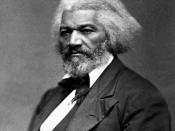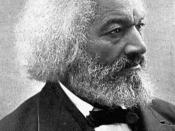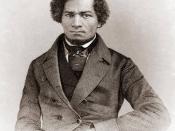The experiences, memories and treatment in any situation are viewed upon differently between a man and a woman. Obvious in the case of slavery, the two sexes were treated differently and so therefore their recollections of such events were different. In the following essay, I will look closely at the perspective of the female slave, Harriet Jacobs in "Incidents in the Life of a Slave Girl", and respectfully show the similarities and differences to that of a male slave, Frederick Douglass in "The Narrative of the Life of Frederick Douglass". Although both experienced their freedoms despite facing great adversity, being a slave woman offers a different perspective of a woman's account of her disadvantages. One way that Harriet Jacobs perceived slavery differently than Frederick Douglass is that as a child, she never realized she was a slave. This could have been a disadvantage because if she had not realize her "place" among the races as well as when she reaches an age of being able to labor and be sold; it would have a profound effect on her when she could have been more prepared.
Within the first page of her autobiography, Jacobs states "I was born a slave; but I never knew itâ¦" (281). She then goes on to state in a different line that "â¦I was so fondly shielded that I never dreamed I was a piece of merchandiseâ¦" (281). Jacobs's father was head workman. He had the liberty to manage his own affairs and work at his trade. She lived in what she describes as a "comfortable home" and had relationships with her family members such as her brother, grandmother, mother and uncle. Frederick Douglass on the other hand, had already realized slavery was amidst him in his childhood. In the first paragraph of Chapter...


